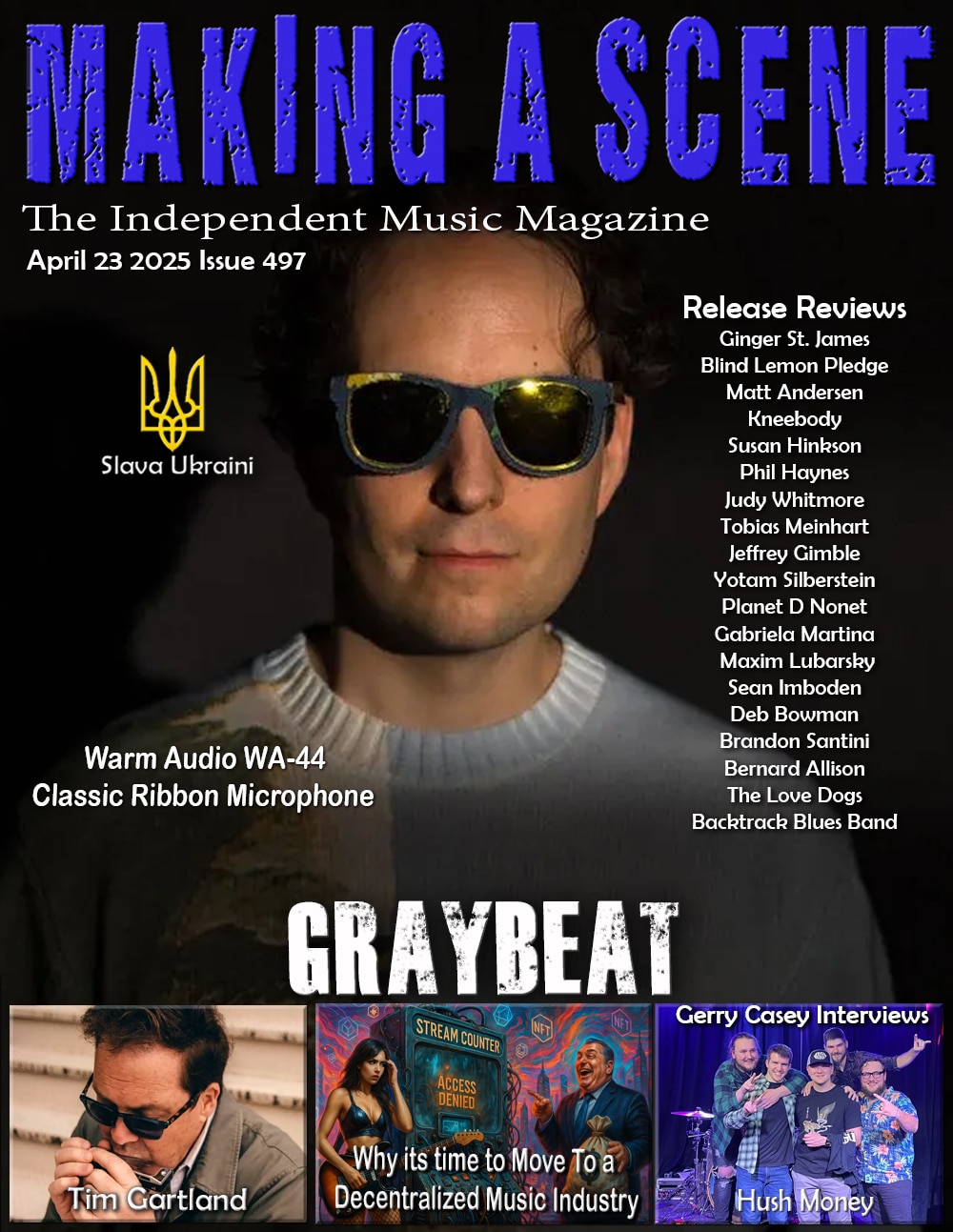Diego Rivera West Circle
 Diego Rivera
West Circle
Posi-Tone
We should all be familiar with saxophonist, composer, and arranger Diego Rivera who issues his ninth album as a leader and seventh for Posi-Tone with West Circle. Rivera is in the company of his longtime collaborators, the ‘house’ rhythm section for the label, if you will. They are pianist Art Hirahara, bassist Boris Kozlov, and drummer Rudy Royston. This may well be the most memorable album Rivera has cut to date due to the deeply expressive, elegiac title track, which serves as a modern-day companion to John Coltrane’s “Alabama.” While the latter is inextricably linked to the Civil Rights movement, Rivera’s “West Circle” mourns the mass shooting that occurred at his alma mater, Michigan State University, and in his hometown of East Lansing, MI on February 13, 2023. From his notes, he says, “I knew those halls, those classrooms, those paths. I had walked into the student union countless times at the very hour the horror unfolded.” The gatefold houses this quote – “The living owe it to those who no longer speak to tell their story for them.”- Czeslaw Milosz. Rivera has dealt with loss in previous recordings, but his mournful tonality here is simply indelible as he pours it all into this tune for a full eight minutes
Yet, one incredible track does not make an album, and Rivera has so much more to offer. He shifts the mood abruptly on Herbie Hancock’s “The Maze,” which appeared on Hancock’s Takin’ Off (Blue Note), a raucous hard bop tune that also naturally features Hirahara, bouncing through the labyrinthine rhythms and changes. Rivera has long been an admirer of both Hirahara’s pianism and his writing, thus covering on soprano the pianist’s “Ebb and Flow,” a fine example of Hirahara’s sense for melody and harmonics. Not to be cute, but it’s a piece that undulates in accordance with its title.
Six of the remaining seven are Rivera originals. “Both Siding” captures tension and release. The harmony stays static but both Rivera and Hirahara improvise around two chords as if engaged in tug-of-war. Neither wants to give in to neutrality as Kozlov and Royston keep the undercurrent churning. With an astute awareness of pacing, Rivera then delivers another emotive ballad, the standout “Frida,” that captures several thoughts. He reflects on his namesake, the prominent Mexican muralist Diego Rivera and his equally talented wife, Frida Kahlo, eventually dubbing his wife, now of thirteen years, ‘my Frida.’ To be more accurate, around the three-and-half minute mark, Rivera morphs from ballad into aggressive mode with a series of rapid and exploratory runs.
True to his mantra and Mexican-American heritage, Rivera has always included Latin tunes on his albums, here complying with the joyous, danceable “Cumbia,” and in a similar way, recalling the sounds of his youth, he nods to his father for introducing him to funk in the ‘70s with “Fungque.” As the Latin spelling implies, this too has its share of Afro-Cuban rhythms with protean blowing from Rivera as well. Although Rivera is generally considered a straight-ahead player, he ventures ‘out’ occasionally as he does on “Debatable” which he delivers in the context of Ornette Coleman’s language. Rivera delivers another impeccable reflective piece with “Just Before Silence.” The rollicking closer, “Mr. Styx,” composed by Donald Walden, is a tribute to the many Detroit musicians who inspired Rivera. He is especially grateful to having performed at the Detroit Jazz Festival in 2008 in a program that honored Walden’s music. This composition, the first that Rivera heard Waden paly, was featured in the concert. It’s a swell of fast-paced hard bop, featuring Royston’s kinetic activity on the eights, and a fine way to end the program as a contrast to the emotive opening title track.
Rivera continues to impress each time out, yet he remains an underrated artist in the competitive arena of saxophonists. Perhaps his poignant rendering of the title track and this album as a whole will steepen his trajectory.
– Jim Hynes
Diego Rivera
West Circle
Posi-Tone
We should all be familiar with saxophonist, composer, and arranger Diego Rivera who issues his ninth album as a leader and seventh for Posi-Tone with West Circle. Rivera is in the company of his longtime collaborators, the ‘house’ rhythm section for the label, if you will. They are pianist Art Hirahara, bassist Boris Kozlov, and drummer Rudy Royston. This may well be the most memorable album Rivera has cut to date due to the deeply expressive, elegiac title track, which serves as a modern-day companion to John Coltrane’s “Alabama.” While the latter is inextricably linked to the Civil Rights movement, Rivera’s “West Circle” mourns the mass shooting that occurred at his alma mater, Michigan State University, and in his hometown of East Lansing, MI on February 13, 2023. From his notes, he says, “I knew those halls, those classrooms, those paths. I had walked into the student union countless times at the very hour the horror unfolded.” The gatefold houses this quote – “The living owe it to those who no longer speak to tell their story for them.”- Czeslaw Milosz. Rivera has dealt with loss in previous recordings, but his mournful tonality here is simply indelible as he pours it all into this tune for a full eight minutes
Yet, one incredible track does not make an album, and Rivera has so much more to offer. He shifts the mood abruptly on Herbie Hancock’s “The Maze,” which appeared on Hancock’s Takin’ Off (Blue Note), a raucous hard bop tune that also naturally features Hirahara, bouncing through the labyrinthine rhythms and changes. Rivera has long been an admirer of both Hirahara’s pianism and his writing, thus covering on soprano the pianist’s “Ebb and Flow,” a fine example of Hirahara’s sense for melody and harmonics. Not to be cute, but it’s a piece that undulates in accordance with its title.
Six of the remaining seven are Rivera originals. “Both Siding” captures tension and release. The harmony stays static but both Rivera and Hirahara improvise around two chords as if engaged in tug-of-war. Neither wants to give in to neutrality as Kozlov and Royston keep the undercurrent churning. With an astute awareness of pacing, Rivera then delivers another emotive ballad, the standout “Frida,” that captures several thoughts. He reflects on his namesake, the prominent Mexican muralist Diego Rivera and his equally talented wife, Frida Kahlo, eventually dubbing his wife, now of thirteen years, ‘my Frida.’ To be more accurate, around the three-and-half minute mark, Rivera morphs from ballad into aggressive mode with a series of rapid and exploratory runs.
True to his mantra and Mexican-American heritage, Rivera has always included Latin tunes on his albums, here complying with the joyous, danceable “Cumbia,” and in a similar way, recalling the sounds of his youth, he nods to his father for introducing him to funk in the ‘70s with “Fungque.” As the Latin spelling implies, this too has its share of Afro-Cuban rhythms with protean blowing from Rivera as well. Although Rivera is generally considered a straight-ahead player, he ventures ‘out’ occasionally as he does on “Debatable” which he delivers in the context of Ornette Coleman’s language. Rivera delivers another impeccable reflective piece with “Just Before Silence.” The rollicking closer, “Mr. Styx,” composed by Donald Walden, is a tribute to the many Detroit musicians who inspired Rivera. He is especially grateful to having performed at the Detroit Jazz Festival in 2008 in a program that honored Walden’s music. This composition, the first that Rivera heard Waden paly, was featured in the concert. It’s a swell of fast-paced hard bop, featuring Royston’s kinetic activity on the eights, and a fine way to end the program as a contrast to the emotive opening title track.
Rivera continues to impress each time out, yet he remains an underrated artist in the competitive arena of saxophonists. Perhaps his poignant rendering of the title track and this album as a whole will steepen his trajectory.
– Jim Hynes
BUY NOW

Discover more from Making A Scene!
Subscribe to get the latest posts sent to your email.














































